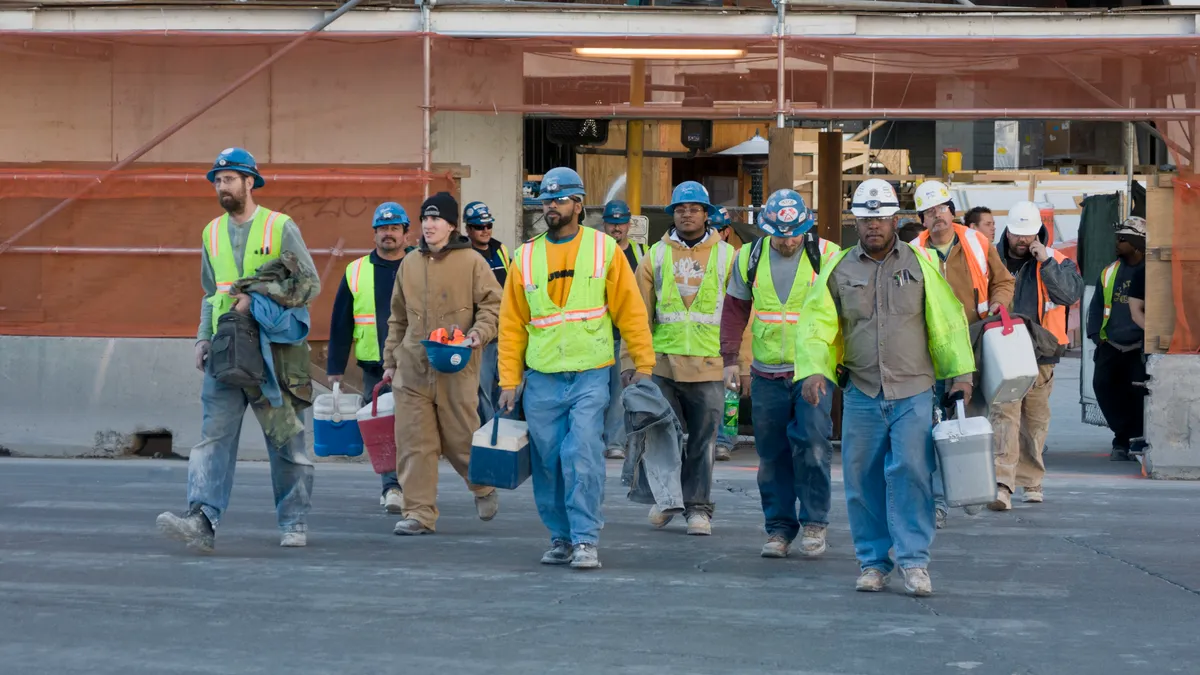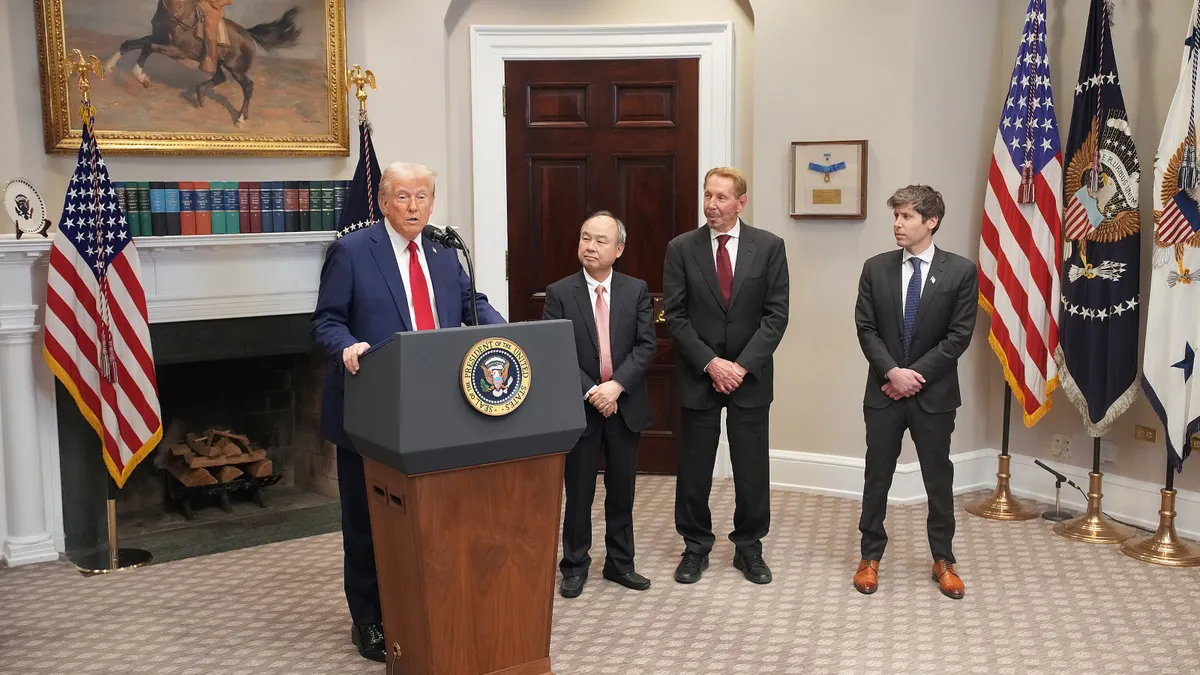Dive Brief:
- Prevailing wage laws in Minnesota, contrary to what some critics assert, do not increase construction costs for publicly funded projects, according to "An Examination of Minnesota’s Prevailing Wage Law: Effects on Costs, Training and Economic Development," a July 2018 report from researchers at the Midwest Economic Policy Institute and Colorado State University-Pueblo.
- Researchers found that prevailing wages stabilized construction costs, with 72% of peer-reviewed studies conducted during the past 18 years determining that they had no impact on the cost of public construction projects. Additional studies that analyzed more than 2,100 public project bids found that prevailing wages did not affect competition for bids either.
- The study found that a higher, stable prevailing wage helps to attract much-needed new workers into the construction industry and gives those in the trades benefits such as health insurance and pensions, reducing their reliance on government assistance programs. And although the study claims that prevailing wage increases employment in Minnesota by 7,200, it also asserts that the benefits are not just for the workers. The greater number of employed injects nearly a billion dollars into the economy and creates millions in new state and local tax revenue.
Dive Insight:
Some states have repealed their prevailing wage laws in the hopes of shaving costs off public construction projects, but at least one study, also by the Midwest Economic Policy Institute, has shown that Indiana did not realize those benefits.
Indiana repealed its prevailing wage law, the Common Construction Wage, in 2015. Supporters claimed that if the free market was allowed to determine wages, the cost of public works projects would come down 10% to 20%, a prediction that never came to pass. According to a January report from the institute, pay for blue-collar workers has dropped 8.5% since the repeal, productivity 5.3% and job growth 1.5%.
The study also found that the public bidding process has not become more competitive, as proponents of the repeal projected, nor have there been any cost savings on public construction projects.
Yet, groups like the Associated Builders and Contractors have plenty of studies at the ready that contradict the Institute's findings. The association supports the repeal of both federal — Davis-Bacon Act — and state prevailing wage laws if they set pay rates that do not echo those of the present construction market. As far as federal prevailing wages, the ABC said Davis-Bacon hampers contractor productivity by increasing project costs and disregards worker skill differences through strict work rules.












